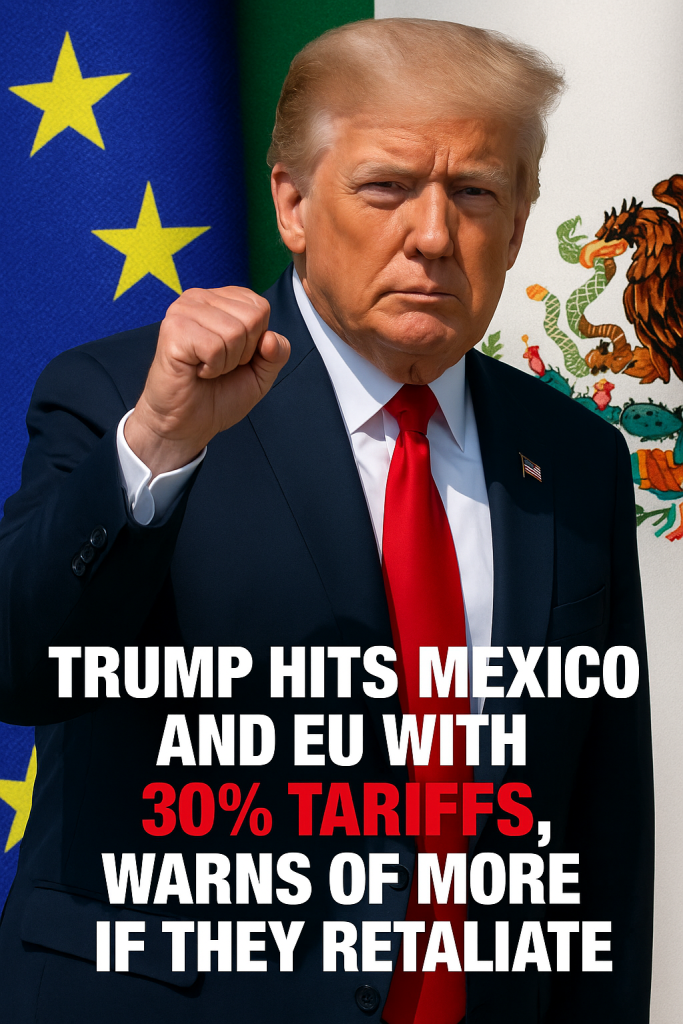In a bold move that has sent shockwaves through international markets, former President Donald J. Trump announced sweeping 30% tariffs on imports from two of America’s largest trading partners, Mexico and the European Union. The announcement, made in April 2024, cites large and unsustainable trade deficits as well as national security concerns as the primary reasons behind this aggressive trade policy shift.
Trump’s statement outlined that the tariffs are designed not only to address the growing trade imbalances that have long been a point of contention in U.S. economic policy but also to protect domestic industries perceived as vital to national security. “We cannot allow continued unfair trade practices that threaten our economy and our safety,” Trump said during a press release, emphasizing that these measures are critical to safeguarding American jobs and technology.
The new tariffs impose a 30% levy on a broad range of goods imported from both Mexico and the EU, including automobiles, steel, agricultural products, and electronics. This hefty tariff rate marks a significant escalation from previous trade disputes and represents one of the most aggressive protectionist policies initiated in recent years.
Critically, Trump issued a stern warning to both trading partners: if Mexico or the EU retaliate with their own tariffs, the United States is prepared to implement even higher duties. This stance signals a potential for an escalating trade war, which could have reverberations across global supply chains and international relations.
Trade Deficits Under the Microscope
According to Trump, the bilateral trade deficits with Mexico and the EU have grown to levels that he describes as “unsustainable.” The former president argues that these imbalances contribute to the erosion of American manufacturing bases and job opportunities, which were key focal points during his previous presidency. The tariffs aim to pressure these regions to rebalance trade agreements and create a more equitable exchange of goods.
National Security Justification
The announcement also underscores a national security rationale for the tariffs, a justification that has gained prominence in recent U.S. trade policy. Trump pointed to the dependence on foreign goods in critical sectors such as steel production and technology components, suggesting that overreliance on Mexico and the EU could pose strategic risks in times of geopolitical conflict.
International and Domestic Reactions
The tariff declaration has received mixed receptions globally. Trade experts warn that such measures could provoke retaliatory tariffs from Mexico and EU member states, sparking a cycle of economic escalation harmful to all parties involved. Stock markets saw initial volatility in response to the news, reflecting concerns over increased costs for businesses and consumers alike.
Within the United States, some industry groups have cautiously welcomed the move as a step toward protecting American workers, while others express apprehension over rising input costs and potential disruption to integrated supply chains—especially in sectors reliant on cross-border trade.
Looking forward, the trade landscape faces significant uncertainty as international partners decide on their responses. The potential for further tariff hikes, as threatened by Trump, looms large, suggesting a new era of trade tensions centered on issues of economic sovereignty and national security.
As negotiations and diplomatic efforts unfold, all eyes remain on Washington, Mexico City, and Brussels to see whether dialogue will prevail or if the global economy will contend with a deepening tariff conflict.



